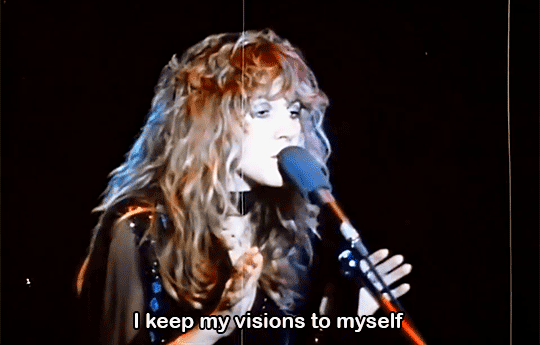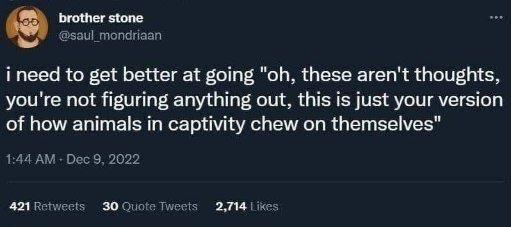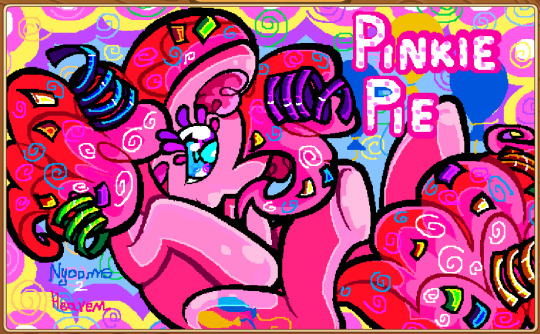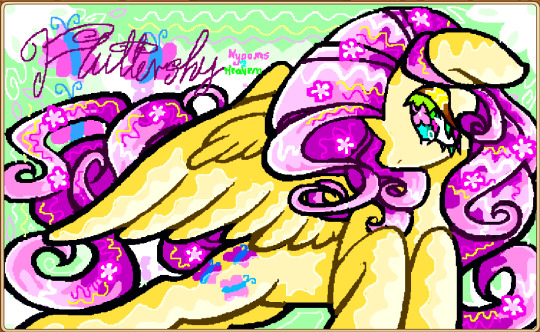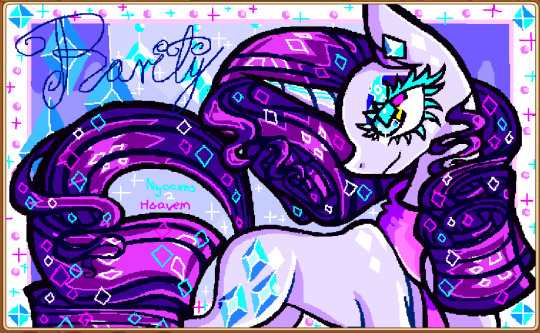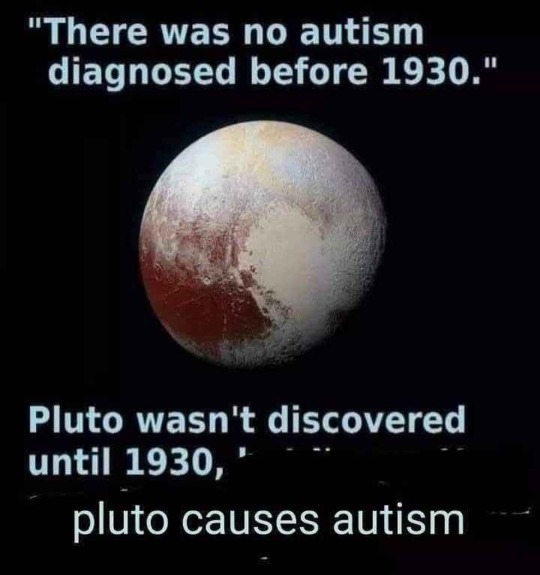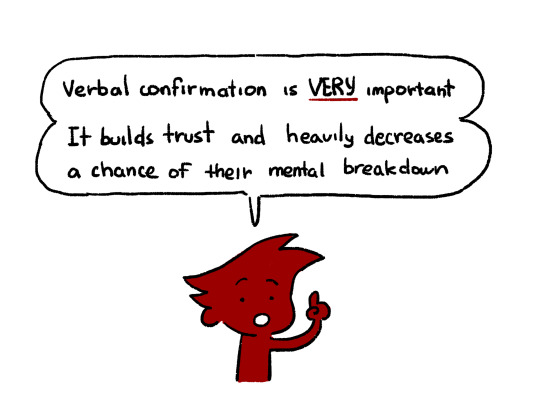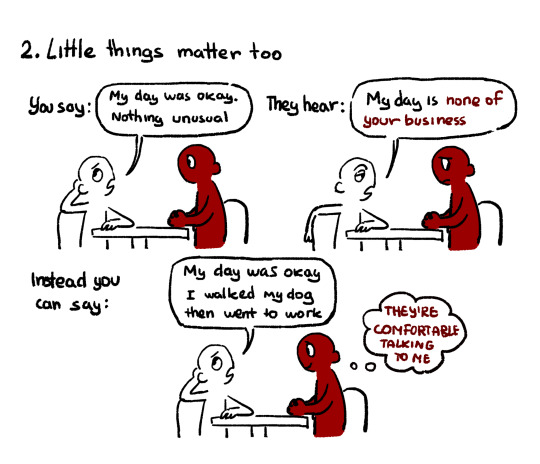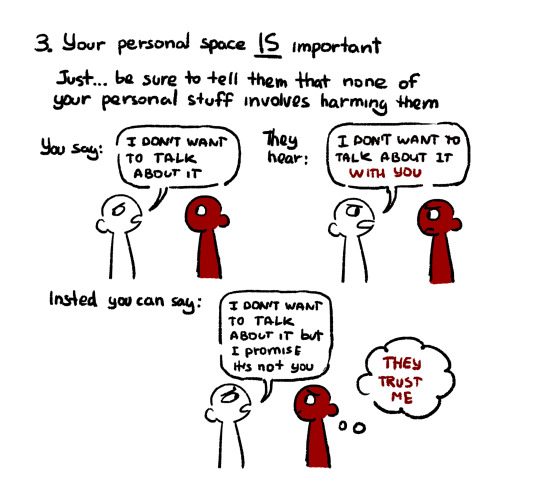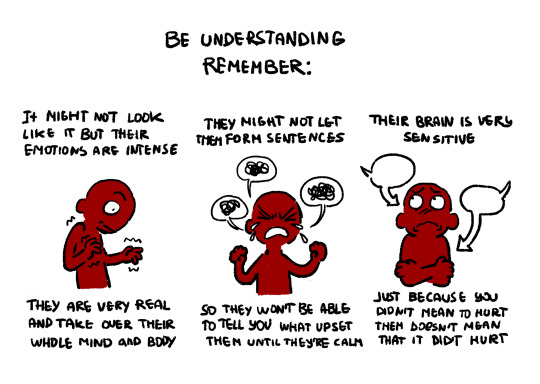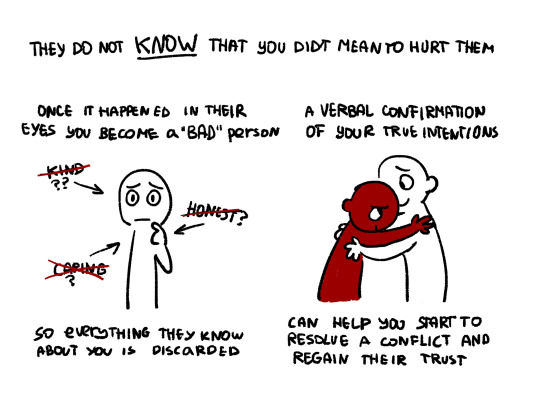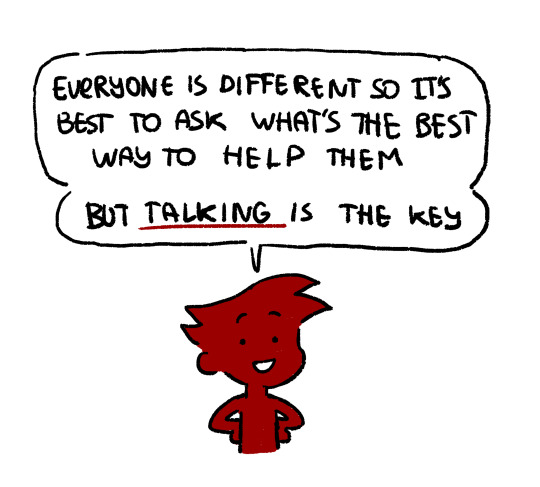Don't wanna be here? Send us removal request.
Text
My favorite grocery store cashier died a few months ago. I know this probably sounds like a bizarre thing to be sad about. Her name was Judith and I only saw her once or twice a week, and only while I was paying for groceries. But even now, months later, I think of her when I'm at the grocery store. She used to save the ends of receipt paper rolls when they only had a foot or two left on them and give them to me, which I never asked her to do, but the first time she did it she held one out to me and said "you look like someone who would make a craft out of this," and I laughed because she was right. I do save them to put in geocaches and letterboxes. Our small talk was about the weather and the weekend and aren't those cookies good? They're so expensive though. But it's worth it.
I'm just saying. If you ever sit around wondering whether you'd be missed if you disappeared off the face of the earth, the answer is probably yes, very much, and probably by more people than you think.
31K notes
·
View notes
Text
how to stop being everyone's therapist and save your own energy ⋆.ೃ࿔*:・ 🌸
you're everyone's go-to person. the one they call when they're crying. the one they text when they're spiraling. the one they dump all their problems on without asking if you have the capacity to hold them.
you've become the unpaid therapist for everyone in your life, and it's draining your soul.
you think it makes you a good friend, daughter, sister, partner. you think it makes you valuable, needed, important. you think it makes you indispensable.
but really, it makes you invisible.
people see you as a service, not a person. they see you as a resource, not a human being with your own needs, struggles, and limits.
and you've trained them to see you this way by always being available, always saying yes, always putting their emotional needs before your own.

you think your worth comes from fixing people
you've convinced yourself that your value lies in your ability to solve other people's problems. you measure your worth by how much others need you. you feel important when people can't function without your advice.
but your worth doesn't come from what you do for others. it comes from who you are as a person.
you're not valuable because you're useful. you're valuable because you exist.
stop measuring your worth by how much you can fix and start measuring it by how much you can feel joy, peace, and fulfillment in your own life.
you're addicted to being needed
being needed feels like being loved. when people depend on you, it feels like they care about you. when they can't survive without your support, it feels like they value you.
but being needed isn't the same as being loved. being depended on isn't the same as being respected. being someone's emotional crutch isn't the same as being their friend.
people who truly love you want you to have boundaries. they want you to take care of yourself. they want you to say no when you need to.
people who only need you will guilt trip you for having limits. they'll make you feel selfish for having your own problems. they'll disappear when you're the one who needs support.
you're scared of what happens if you stop rescuing people
you're scared that if you stop being everyone's therapist, they won't need you anymore. and if they don't need you, they'll leave.
you're scared that your relationships are built on what you provide, not who you are.
and you might be right.
some people are only in your life because you're useful to them. some relationships only exist because you give more than you take. some people only care about you when you're fixing their problems.
but those aren't real relationships anyway. they're transactions. and you deserve so much more than transactional love.
you don't know how to have relationships where you're not the savior
you've been the helper for so long that you don't know how to just be a friend. you don't know how to have conversations that aren't about other people's problems. you don't know how to connect with people without fixing them.
you think if you're not solving their problems, you have nothing to offer. you think if you're not giving advice, you're not being supportive. you think if you're not rescuing them, you're being selfish.
but real relationships are built on mutual support, shared experiences, and genuine connection. not on one person constantly saving the other.
you're avoiding your own healing by focusing on theirs
it's easier to focus on other people's problems than your own. it's easier to fix their lives than to look at what's broken in yours. it's easier to be their therapist than to get your own therapy.
you use their drama to distract from your own. you use their chaos to avoid your own healing. you use their neediness to feel needed.
but you can't heal others while avoiding your own wounds. you can't give from an empty cup. you can't be their light while dimming your own.
you think setting boundaries makes you a bad person
you think saying no to someone in crisis makes you heartless. you think having limits makes you selfish. you think protecting your energy makes you uncaring.
but boundaries aren't walls. they're gates. they protect your energy so you can give from a full cup, not an empty one.
boundaries aren't about not caring. they're about caring sustainably. they're about being able to show up for the people you love without losing yourself in the process.
how to stop being everyone's therapist
1. recognize the patterns
notice who only contacts you when they have problems. notice who never asks how you're doing. notice who disappears when you need support.
notice how you feel after these conversations. drained? exhausted? overwhelmed? used?
your energy doesn't lie. if someone consistently leaves you feeling empty, they're taking more than they're giving.
2. stop offering unsolicited advice
just because someone is venting doesn't mean they want you to fix it. just because they're struggling doesn't mean they need you to solve it.
sometimes people just want to be heard, not helped. sometimes they just want validation, not solutions.
ask before you give advice: "do you want me to listen, or do you want suggestions?"
3. set time limits on problem-focused conversations
you don't have to listen to someone complain for three hours. you don't have to absorb their anxiety all night. you don't have to carry their emotional baggage indefinitely.
set limits: "i have fifteen minutes to talk" or "i'm emotionally full right now, can we catch up about this tomorrow?"
your time and energy are valuable. treat them like they are.
4. stop rescuing people from their own choices
stop giving money to people who are financially irresponsible. stop covering for people who don't follow through. stop cleaning up messes that other adults made.
when you rescue people from the consequences of their choices, you rob them of the opportunity to learn and grow.
let people experience the natural consequences of their actions. it's not cruel. it's necessary.
5. redirect chronic complainers
some people don't want solutions. they want an audience for their suffering. they want someone to validate their victim mentality. they want someone to enable their dysfunction.
when someone brings you the same problem repeatedly without taking your advice or making changes, stop engaging.
"it sounds like you need professional help with this" or "have you considered talking to a therapist about this pattern?"
6. require reciprocity in relationships
healthy relationships involve give and take. if you're always giving and they're always taking, it's not a relationship. it's a charity case.
start paying attention to who shows up for you. who asks about your problems. who offers support when you need it.
invest your energy in people who invest theirs in you.
7. get your own therapist
you can't be everyone else's therapist while refusing to get your own. you can't pour from an empty cup indefinitely.
get professional help for your own issues. work on your own healing. address your own trauma.
you'll be a better friend, partner, and family member when you're not using others to avoid your own growth.
what to expect when you stop being everyone's therapist
some people will be angry. they'll accuse you of being selfish, uncaring, or changed. they'll try to guilt trip you back into your old role.
let them be angry. their discomfort with your boundaries is not your problem to fix.
some people will disappear entirely. they'll realize you're no longer useful to them and move on to their next emotional supply.
good. those weren't real relationships anyway.
some people will respect your boundaries and adjust. they'll start showing up for you the way you've always shown up for them. they'll appreciate your friendship more when it's not one-sided.
these are your real friends. invest in them.
the difference between supporting and enabling
supporting someone: listening without judgment, offering encouragement, helping them find professional resources, being there during tough times.
enabling someone: constantly fixing their problems, making excuses for their behavior, giving them money they don't deserve, absorbing their emotions as your own.
support helps people grow. enabling keeps them stuck.
how to have healthy relationships
healthy relationships involve:
mutual support and care
respect for each other's boundaries
conversations about things other than problems
shared activities and interests
reciprocal emotional investment
both people taking responsibility for their own healing
toxic relationships involve:
one person constantly giving, the other constantly taking
no respect for boundaries
conversations always focused on one person's drama
no shared joy, only shared misery
emotional vampirism and dependency
one person expected to fix the other
signs you've been everyone's therapist too long
you feel drained after most social interactions
people only contact you when they have problems
you know everyone else's business but no one knows yours
you feel guilty when you have your own needs
you attract broken people who want to be fixed
you've lost touch with your own emotions and needs
you feel responsible for other people's happiness
you can't say no without feeling guilty
what your life looks like when you stop being everyone's therapist
you have energy for your own goals and dreams
your relationships are balanced and reciprocal
you attract healthy people who respect your boundaries
you have time for activities that bring you joy
you're in touch with your own emotions and needs
you feel peaceful instead of constantly drained
you're able to support others from a full cup, not an empty one
remember: you're not responsible for fixing everyone
you're not responsible for other people's happiness, healing, or growth. you're not required to sacrifice your peace for their problems. you're not obligated to set yourself on fire to keep others warm.
your job is to heal yourself, love yourself, and protect yourself. everything else is optional.

stop being everyone's therapist and start being your own best friend. the people who truly love you will understand. the ones who don't aren't your people anyway.
51 notes
·
View notes
Text
Yeah you're right. It WOULD be pretty fucked up if you were a swan but you were raised by ducks and you grew up never seeing another swan or even knowing that such a thing as a swan even existed so you just thought you were a duck with something super wrong with it.
401K notes
·
View notes
Text

the only reason I go on Reddit now is to find these bad two sentence horror posts. they're great. they're bad. but they're great.
74K notes
·
View notes
Text
mlp cool
So in an ask one duder mentioned mlp cast as mobians so I thought it'be funny to try



Mind: I'm not much of an mlp fan, so i'm sorry if like uhhhh I didn't get it all that right
Btw, luvs, I have a twitter where I usually Sonic-unrelated stuff, would be gratetful if you checked it <33
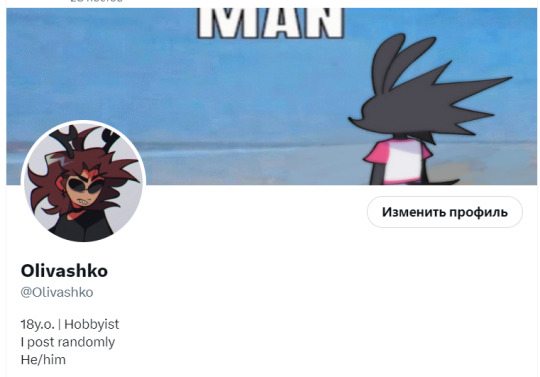
54K notes
·
View notes
Text
perhaps ripping this one little piece of skin off my lips will at last render them plump and moisturized
96K notes
·
View notes
Photo



こども用ソファで猫じゃらししてたら、とんでもない瞬間が撮れてしまった。ポーズもすごいがアニメみたいな顔になってる…。
307K notes
·
View notes
